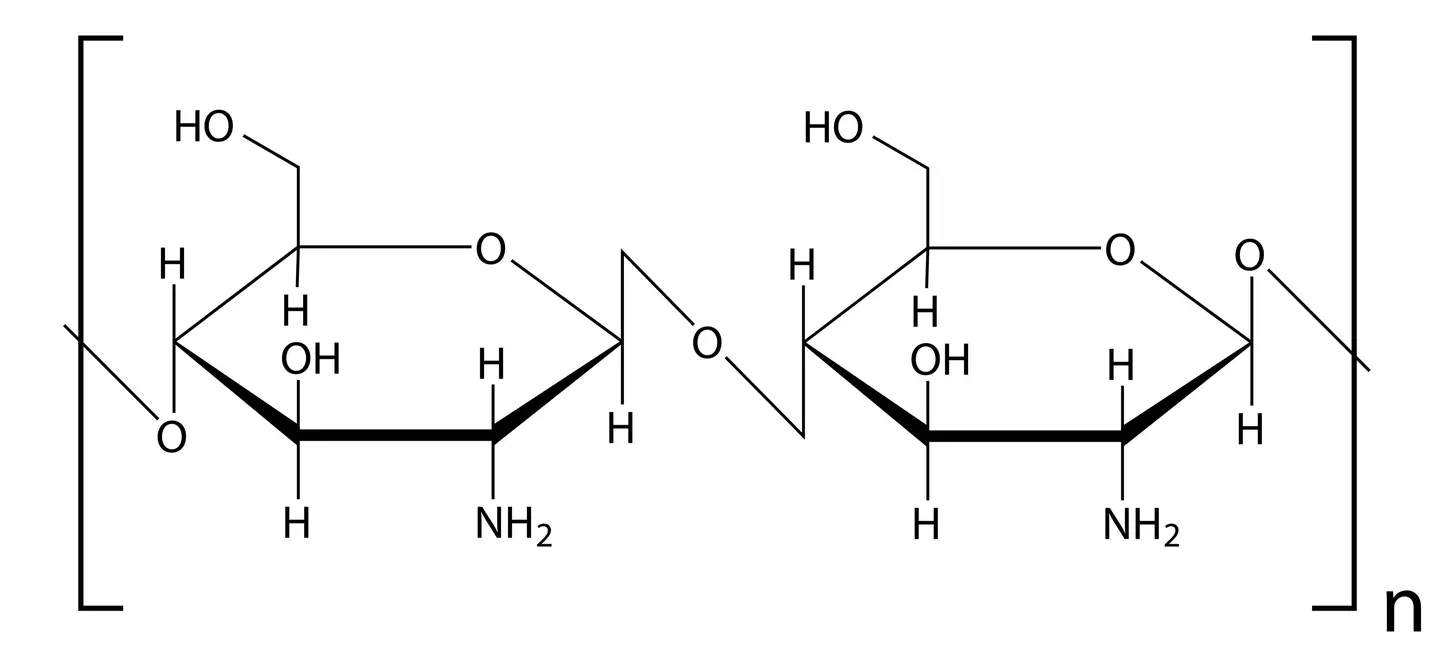
Chitosan is a sugar that comes from the outer skeleton of shellfish, including crab, lobster, and shrimp. It's used as medicine and in drug manufacturing.
Chitosan is a fibrous substance that might reduce how much fat and cholesterol the body absorbs from foods. It also helps blood clot when applied to wounds.
People use chitosan for high blood pressure, high cholesterol, obesity, wound healing, and many other purposes, but there is no good scientific evidence to support many of these uses.
Is It Effective?
NatMed Pro rates effectiveness based on scientific evidence according to the following scale: Effective, Likely Effective, Possibly Effective, Possibly Ineffective, Likely Ineffective, Ineffective, and Insufficient Evidence to Rate.
- High blood pressure. Replacing table salt with a table salt product that contains small amounts of chitosan (Symbiosal) might help lower blood pressure in people with high blood pressure.
- Obesity. Taking chitosan by mouth while on a calorie-restricted diet can improve weight loss in people who are overweight or obese, but only by a very small amount.
- Recovery after surgery. Applying a chitosan gel might help prevent scar tissue from forming in the sinuses after surgery.
There is interest in using chitosan for a number of other purposes, but there isn't enough reliable information to say whether it might be helpful.
Is it Safe?
When taken by mouth: Chitosan is possibly safe when used for up to 3 months. It might cause stomach upset, constipation, or gas.
When applied to the skin: Chitosan is possibly safe when used short-term.
Special Precautions & Warnings:
Pregnancy and breast-feeding: There isn't enough reliable information to know if chitosan is safe to use when pregnant or breast-feeding. Stay on the safe side and avoid use.
Shellfish allergy: Chitosan is taken from the outer skeleton of shellfish. People with allergies to shellfish might also be allergic to chitosan.
Acyclovir (Zovirax)
Interaction Rating=Moderate Be cautious with this combination.
Taking chitosan with acyclovir might reduce the amount of acyclovir the body absorbs. This might reduce the effects of acyclovir.
Warfarin (Coumadin)
Interaction Rating=Moderate Be cautious with this combination.
Warfarin is a blood thinner. There is some concern that taking chitosan might increase the blood-thinning effects of warfarin. This could increase the risk for bruising or bleeding.
Calcium: Chitosan might reduce how much calcium the body absorbs from supplements.
Magnesium: Chitosan might reduce how much magnesium the body absorbs from supplements.
Selenium: Chitosan might reduce how much selenium the body absorbs from supplements.
Vitamin A: Chitosan may reduce how much vitamin A the body absorbs from supplements.
Vitamin D: Chitosan may reduce how much vitamin D the body absorbs from supplements.
Vitamin E: Chitosan might reduce how much vitamin E the body absorbs from supplements.
Vitamin K: Chitosan may reduce how much vitamin K the body absorbs from supplements.
There are no known interactions with foods.
Chitosan has most often been used by adults in doses of 1-1.35 grams by mouth daily for up to 12 weeks. It's also used in mouthwashes, gels, chewing gum, eye drops, and wound dressings. Speak with a healthcare provider to find out what type of product and dose might be best for a specific condition.
Ascorbate de Chitosane, Chitosan Ascorbate, Chitosane, Chitosane Déacétylé, Chitosane Mono-Carboxyméthylé, Chitosan-N-Acetylcysteine, Deacetylated Chitin, Deacetylated Chitosan, Enzymatic Polychitosamine Hydrolisat, HEP-30, Hydrolisat Enzymatique de Polychitosamine, Mono-Carboxymethylated Chitosan, N-Carboxybutyl Chitosan, N-Carboxybutyl Chitosane, N,O-Sulfated Chitosan, O-Sulfated N-Acetylchitosan, Poly-D-Glucosamine, Poly-N-Acetyl-Glucosamine, Quitosano, Sulfated N-Carboxymethylchitosan, Sulfated O-Carboxymethylchitosan, Trimethyl Chitosan Chloride.
Information on this website is for informational use only and is not intended to replace professional medical advice, diagnosis, or treatment. While evidence-based, it is not guaranteed to be error-free and is not intended to meet any particular user’s needs or requirements or to cover all possible uses, safety concerns, interactions, outcomes, or adverse effects. Always check with your doctor or other medical professional before making healthcare decisions (including taking any medication) and do not delay or disregard seeking medical advice or treatment based on any information displayed on this website.
© TRC Healthcare 2024. All rights reserved. Use and/or distribution is permitted only pursuant to a valid license or other permission from TRC Healthcare.
